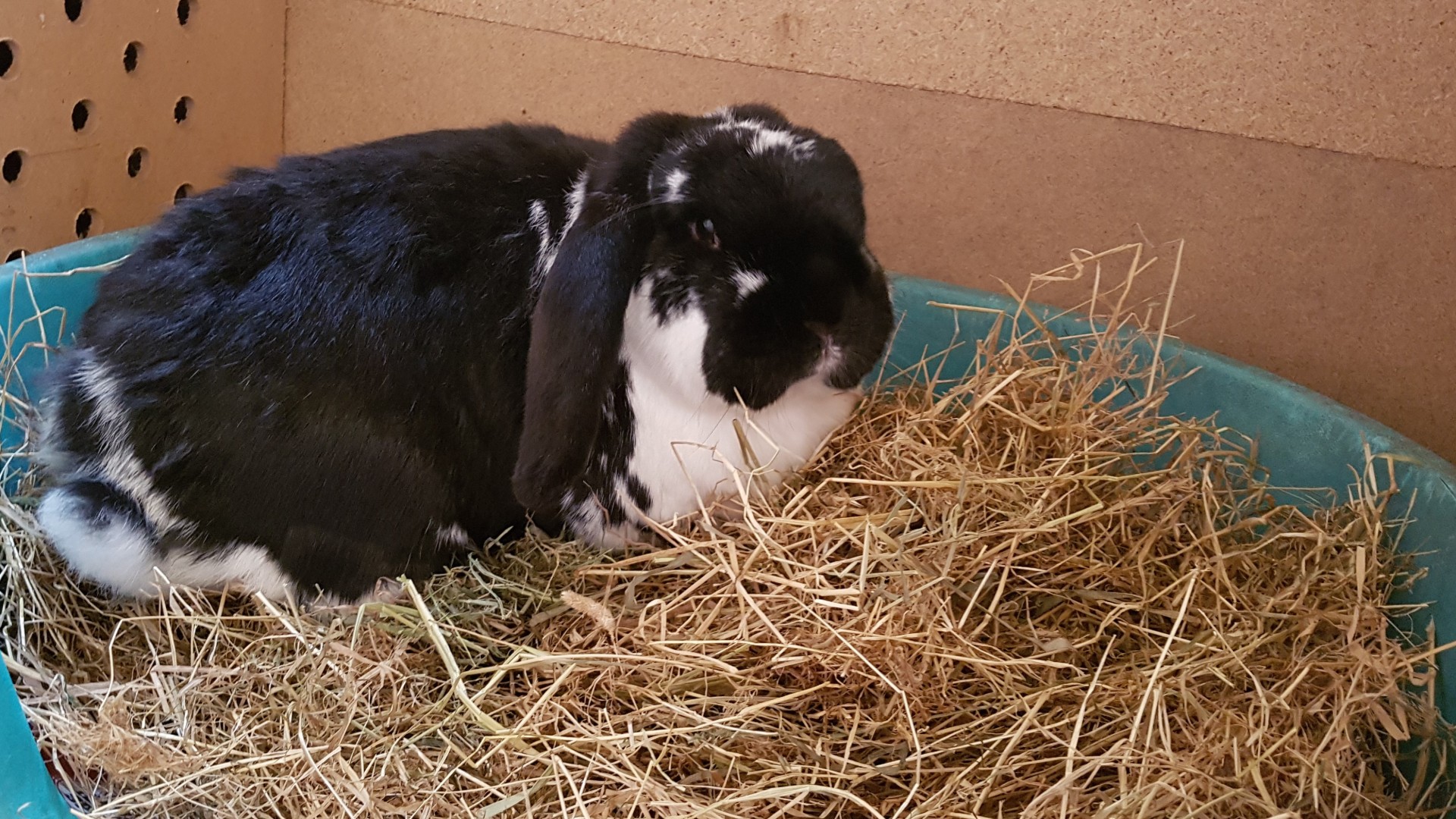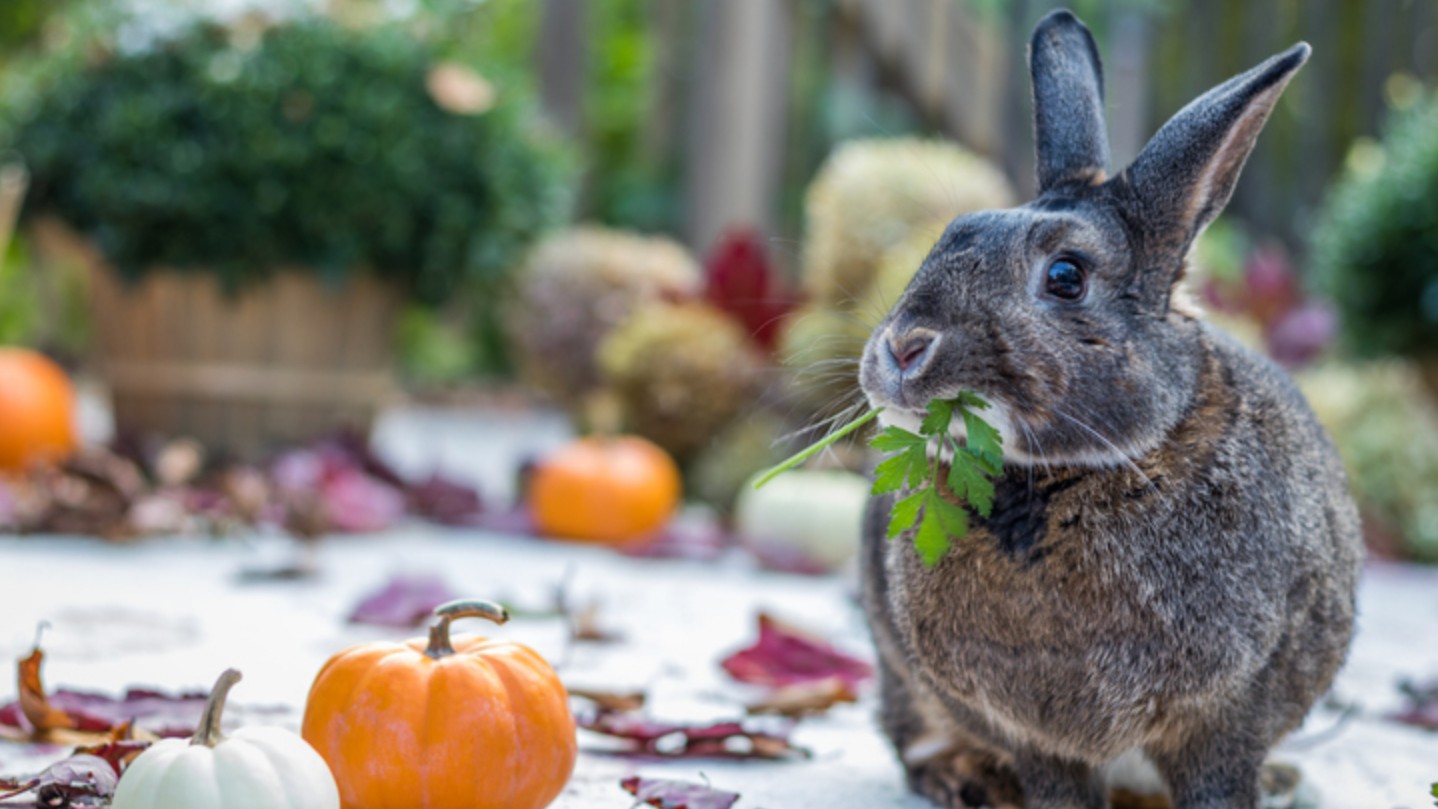Guide to rabbit care: Five tips to keep your bunny healthy
Rabbit care is very important, so do it properly, because they make great family pets

There's more to good rabbit care than first meets the eye. Despite this, to many families, a rabbit looks like a relatively low-maintenance pet. Simply buy one of the best rabbit hutches, grab some of the best rabbit food, and you’re all set, right?
Wrong! In order to provide a healthy environment for your rabbit, it’s important to do your research and learn about properly caring for your floppy-eared friend. Providing a quality hutch along with an appropriate enclosure, that's made secure with one of the best rabbit runs, is vital.
Regular exercise, a well-balanced diet, mental stimulation, socialization, and appropriate veterinary care are also important components in properly caring for your pet rabbit. Taking good care of your rabbit is essential if you want it to reach a typical 8-12 year rabbit lifespan.
1. Create a suitable and safe enclosure for your rabbit
The first decision is whether you plan to house your rabbit indoors or outdoors. Rabbits need a lot of space and there are pros and cons to both.
Many owners find that housing their rabbit indoors allows them to form a greater bond with their pet, due to the increased interaction they have with them. This can lead to a more affectionate pet. Housing your rabbit indoors can also keep them better protected against other animals like foxes and cats, as well as stop them from being exposed to extremes of temperature. You can keep a closer eye on your rabbit indoors too, spotting health problems earlier.
Housing a rabbit outdoors can, however, allows for larger accommodation, easier access to an outdoor run and better ventilation.
Once you’ve decided where to house your rabbit, the next thing to decide is what type of housing! Some indoor rabbit owners dedicate an entire room to their rabbit, removing anything that isn’t “rabbit proof” and creating separate areas for food, rest, and elimination within the room. Most owners, however, purchase a rabbit condo or rabbit cage. When choosing a condo or cage for your rabbit, more space is better. The Rabbit Welfare Association & Fund recommend accommodation that is at least 3m x 2m x 1m to allow your rabbit to stretch, stand up and hop comfortably in.
Get the best advice, tips and top tech for your beloved Pets
Also, ensure that your rabbit has a smooth area within the cage to rest on because the wire grates that are found on the bottom of many cages can lead to skin and foot issues.
2. Rabbit-proof your home and garden
Rabbits need daily exercise. Lack of exercise can contribute to several health issues, including obesity, poor muscle tone, low bone density, gastrointestinal disorders, urinary disorders, and behavioural issues. Therefore, you will need to let your rabbit out of its cage regularly.
If you allow your rabbit to roam indoors then make sure you know how to bunny proof a room. Rabbits love to chew, so electric cords can be especially dangerous. Any accessible wires or cords should be covered with tubing or protective plastic. You should also protect anything that you don’t want to have damaged, especially items like plants and books. Finally, you will want to create a barrier that will keep your rabbit from going under your bed, couches, etc, because rabbits can cause significant damage whilst out of sight in these areas.
If you can let your rabbit out in the garden, then they will benefit hugely from the opportunity to dig and nibble on fresh grass. Vitamin D production is also stimulated by sunlight, which rabbits are unable to get indoors. This vitamin is important in maintaining healthy bones, muscles and immunity.
Just make sure your rabbit is kept safe whilst exploring outdoors. Ensure that your garden is well secured and free from poisonous plants. If you are unable to give your rabbit full access to the garden then consider fencing off a portion or providing a large run.
You'll also need to learn how to keep a rabbit warm in the winter.

3. Provide an appropriate diet, consisting of hay, vegetables, and rabbit pellets
When considering what to feed your rabbit, you must remember that the most important component of a rabbit’s diet is hay. Your rabbit should have unlimited access to the best hay for rabbits at all times. While legume hays, such as clover and alfalfa, can be used as a special treat, grass hay should constitute the majority of your rabbit’s diet. Appropriate grass hays include timothy, oat, rye, barley, or meadow grass. If possible, you should aim to offer your rabbit a variety of grass hays, as each hay has a slightly different nutrient profile, always making sure it is good quality, fresh and fragrant smelling.
Green vegetables are the second most important component of your rabbit’s diet. Rabbits enjoy a variety of green vegetables, including broccoli, cabbage, leaf lettuce, romaine lettuce, bok choy, brussels sprouts, collard greens, kale, parsley, and others. To limit exposure to pesticides, you should always wash vegetables before feeding them to your rabbit. Fruits and sweet vegetables like carrots can also be given occasionally, but they should be regarded as a special treat and should not be a part of your rabbit’s daily diet.
Rabbit pellets should comprise a small portion of your rabbit’s daily diet. Overfeeding pellets can lead to obesity, while also decreasing the quantity of nutritious hay and vegetables that your rabbit eats. Additionally, eating large amounts of pelleted food can slow your rabbit’s gastrointestinal movements. Aim to provide approximately 10-15% of your rabbit’s diet in the form of pelleted rabbit food, or approximately ¼ cup of pellets per 4 pounds of body weight per day. For more info read our five do's and don't of feeding rabbits correctly.
4. Provide appropriate grooming, socializing, and enrichment
Rabbits are social animals and as such should be kept with others of their species in pairs or groups so that they can display natural behaviours. It is a breach of the five freedoms of animal welfare to keep a rabbit on its own unless advised by a vet or behaviourist to do so.
Rabbits also require plenty of human attention. It’s important to interact with your rabbits daily, to provide them with both mental stimulation and additional socialization. Rabbits also require regular grooming, such as brushing and nail trims. To be able to safely groom your rabbit, your rabbit needs to be accustomed to being handled regularly.
They are also prone to boredom. Therefore, they need to be provided with novel toys on a regular basis. These toys don’t necessarily need to be store-bought; even a cardboard box with a hole cut in it as a door can provide enrichment. Take a look at our guide to the best rabbit toys for some great ideas on accessories.
5. Work with a veterinarian to ensure that your rabbit receives regular wellness care
Like many other pets, rabbits require regular veterinary care in order to remain at their healthiest. Talk to your veterinarian about your rabbit’s health needs and learn the veterinarian’s preventive care recommendations.
Many veterinarians may recommend spaying or neutering rabbits, to prevent cancer and behavioural issues. Additionally, your rabbit should see the veterinarian for a wellness visit every 6-12 months, to have a thorough physical examination, vaccinations and dental evaluation. Rabbits are prone to overgrown teeth and other dental issues, so it is not uncommon for rabbits to require dental care during the course of their lives.
Additionally, you should always contact your veterinarian if you notice that your rabbit is demonstrating any signs of illness. Any respiratory signs or loss of appetite indicates the need for a veterinary visit as soon as possible.
And while parasites aren't commonly found on rabbits, it can still happen — especially in multi-pet households. Our guide to how to get rid of fleas on rabbits will help you clear an infestation quickly.
Rabbits are a commitment
It’s important to understand that a pet rabbit represents a significant commitment, much like adding a dog or cat to your home. Although rabbits may be smaller in size, they still require a significant amount of care and attention. However, the reward for this effort can be tremendous!
You might also want to read about rabbit winter care.
Claire currently works in Kettering as a Head Nurse in a practice with a high rabbit caseload, as well as frequently lecturing and writing on rabbits to both veterinary professionals and owners.

